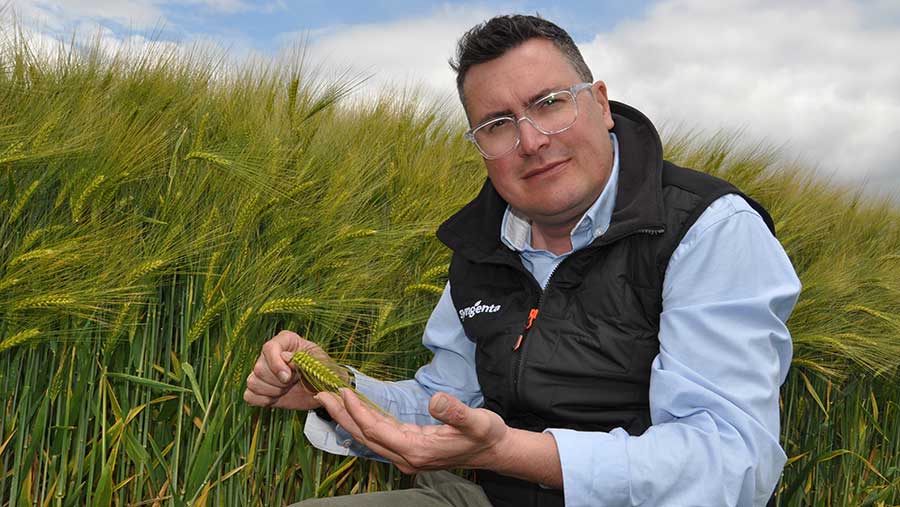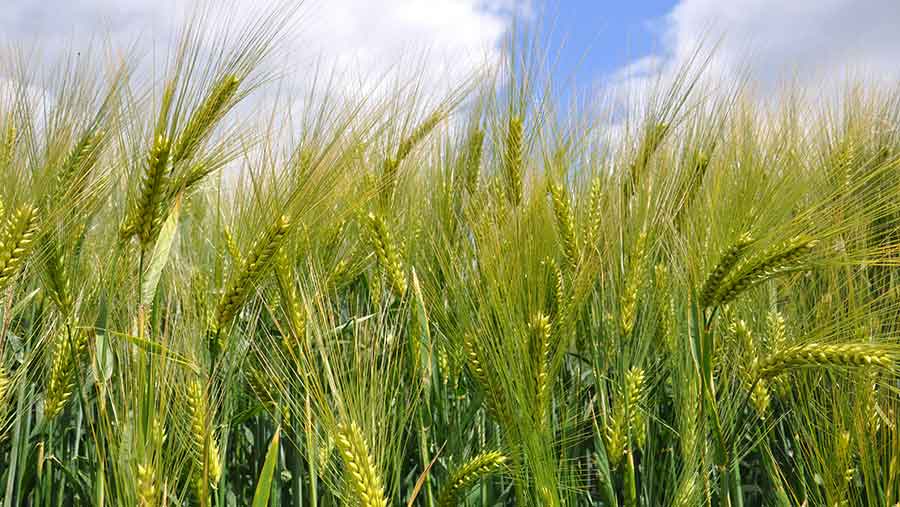Advertiser content
How cereal breeding is helping growers meet future on-farm challenges
Nitrogen (N) fertiliser limits, climate change, and lack of new chemistry. Those are among the biggest technical challenges to cereal growing that farmers expect to face in the next five years, according to a Syngenta survey of Farmers Weekly readers.
With more than 200 farmers replying, 48% expected N fertiliser limits to be among their three biggest challenges, 37% cited climate change, and 34% said lack of new chemistry.
Similarly, when asked which factors they thought would have the biggest influence on their cropping in 10 years’ time, 64% also mentioned lack of crop protection products and 54% mentioned climate change.
“Clearly, these are pressing issues,” says Mark Shaw, Syngenta UK hybrid barley portfolio manager. “But they are also areas where plant breeding can potentially help.

Mark Shaw © Syngenta
“Addressing fertiliser limits concerns, research has already shown that Hyvido hybrid barley receiving a reduced N fertiliser dose can deliver similar yields to a conventional winter barley receiving a higher, standard dose.
“Also, against concerns about a lack of new crop protection products, we have launched SY Kestrel, the first Hyvido hybrid with barley yellow dwarf virus (BYDV) resistance.”

SY KESTREL © Syngenta
James Melichar, Syngenta hybrid cereals portfolio manager Europe, says SY Kestrel is the first hybrid from a new phase in Hyvido breeding – Hyvido Neo – and additional traits are being actively pursued.
“The idea is to target big pain points that are facing growers,” says James, “such as climate change and how to tackle pests and diseases with potentially fewer crop protection inputs.
“We started with BYDV resistance. The next Hyvido Neo target that we believe will be important will be bunt and smut diseases. These might not be high on farmers’ agendas currently, but if we lose effective fungicide chemistry, they could make winter barley growing become extremely difficult.
“After this, our next target is responding to the prospect of water becoming more limiting with climate change.
“Already, with its hybrid vigour, Hyvido hybrid barley produces vigorous rooting. And bigger roots are associated with improved access to soil moisture. But we now also have our first hybrid wheat in its first year of official testing.
“With hybrid wheat, we’re looking for higher yields but also similar hybrid vigour benefits to Hyvido – including large and robust root structures and canopies, and resilience to different growing conditions.
“In essence, our breeding is focused on introducing varieties that are more future-proof,” James concludes.
Find out more on the Syngenta website.
Provided by
Syngenta is one of the world’s leading agricultural companies, comprising of crop protection and seeds. Our ambition is to safely help feed the world while taking care of the planet.
